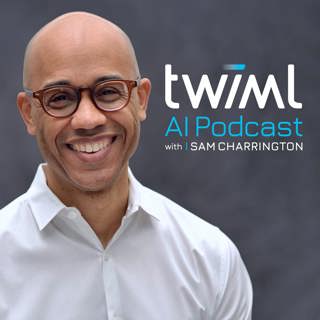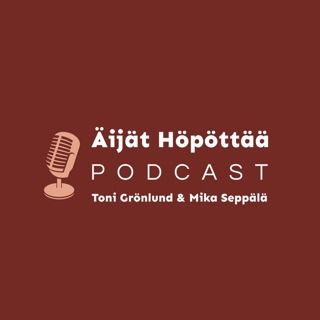
Robotic Dexterity and Collaboration with Monroe Kennedy III - #619
Today we’re joined by Monroe Kennedy III, an assistant professor at Stanford, director of the Assistive Robotics and Manipulation Lab, and a national director of Black in Robotics. In our conversation with Monroe, we spend some time exploring the robotics landscape, getting Monroe’s thoughts on the current challenges in the field, as well as his opinion on choreographed demonstrations like the dancing Boston Robotics machines. We also dig into his work around two distinct threads, Robotic Dexterity, (what does it take to make robots capable of doing manipulation useful tasks with and for humans?) and Collaborative Robotics (how do we go beyond advanced autonomy in robots towards making effective robotic teammates capable of working with human counterparts?). Finally, we discuss DenseTact, an optical-tactile sensor capable of visualizing the deformed surface of a soft fingertip and using that image in a neural network to perform calibrated shape reconstruction and 6-axis wrench estimation. The complete show notes for this episode can be found at twimlai.com/go/619.
6 Maalis 202352min

Privacy and Security for Stable Diffusion and LLMs with Nicholas Carlini - #618
Today we’re joined by Nicholas Carlini, a research scientist at Google Brain. Nicholas works at the intersection of machine learning and computer security, and his recent paper “Extracting Training Data from LLMs” has generated quite a buzz within the ML community. In our conversation, we discuss the current state of adversarial machine learning research, the dynamic of dealing with privacy issues in black box vs accessible models, what privacy attacks in vision models like diffusion models look like, and the scale of “memorization” within these models. We also explore Nicholas’ work on data poisoning, which looks to understand what happens if a bad actor can take control of a small fraction of the data that an ML model is trained on. The complete show notes for this episode can be found at twimlai.com/go/618.
27 Helmi 202343min

Understanding AI’s Impact on Social Disparities with Vinodkumar Prabhakaran - #617
Today we’re joined by Vinodkumar Prabhakaran, a Senior Research Scientist at Google Research. In our conversation with Vinod, we discuss his two main areas of research, using ML, specifically NLP, to explore these social disparities, and how these same social disparities are captured and propagated within machine learning tools. We explore a few specific projects, the first using NLP to analyze interactions between police officers and community members, determining factors like level of respect or politeness and how they play out across a spectrum of community members. We also discuss his work on understanding how bias creeps into the pipeline of building ML models, whether it be from the data or the person building the model. Finally, for those working with human annotators, Vinod shares his thoughts on how to incorporate principles of fairness to help build more robust models. The complete show notes for this episode can be found at https://twimlai.com/go/617.
20 Helmi 202331min

AI Trends 2023: Causality and the Impact on Large Language Models with Robert Osazuwa Ness - #616
Today we’re joined by Robert Osazuwa Ness, a senior researcher at Microsoft Research, to break down the latest trends in the world of causal modeling. In our conversation with Robert, we explore advances in areas like causal discovery, causal representation learning, and causal judgements. We also discuss the impact causality could have on large language models, especially in some of the recent use cases we’ve seen like Bing Search and ChatGPT. Finally, we discuss the benchmarks for causal modeling, the top causality use cases, and the most exciting opportunities in the field. The complete show notes for this episode can be found at twimlai.com/go/616.
14 Helmi 20231h 22min

Data-Centric Zero-Shot Learning for Precision Agriculture with Dimitris Zermas - #615
Today we’re joined by Dimitris Zermas, a principal scientist at agriscience company Sentera. Dimitris’ work at Sentera is focused on developing tools for precision agriculture using machine learning, including hardware like cameras and sensors, as well as ML models for analyzing the vast amount of data they acquire. We explore some specific use cases for machine learning, including plant counting, the challenges of working with classical computer vision techniques, database management, and data annotation. We also discuss their use of approaches like zero-shot learning and how they’ve taken advantage of a data-centric mindset when building a better, more cost-efficient product.
6 Helmi 202332min

How LLMs and Generative AI are Revolutionizing AI for Science with Anima Anandkumar - #614
Today we’re joined by Anima Anandkumar, Bren Professor of Computing And Mathematical Sciences at Caltech and Sr Director of AI Research at NVIDIA. In our conversation, we take a broad look at the emerging field of AI for Science, focusing on both practical applications and longer-term research areas. We discuss the latest developments in the area of protein folding, and how much it has evolved since we first discussed it on the podcast in 2018, the impact of generative models and stable diffusion on the space, and the application of neural operators. We also explore the ways in which prediction models like weather models could be improved, how foundation models are helping to drive innovation, and finally, we dig into MineDojo, a new framework built on the popular Minecraft game for embodied agent research, which won a 2022 Outstanding Paper Award at NeurIPS. The complete show notes for this episode can be found at twimlai.com/go/614
30 Tammi 20231h 1min

AI Trends 2023: Natural Language Proc - ChatGPT, GPT-4 and Cutting Edge Research with Sameer Singh - #613
Today we continue our AI Trends 2023 series joined by Sameer Singh, an associate professor in the department of computer science at UC Irvine and fellow at the Allen Institute for Artificial Intelligence (AI2). In our conversation with Sameer, we focus on the latest and greatest advancements and developments in the field of NLP, starting out with one that took the internet by storm just a few short weeks ago, ChatGPT. We also explore top themes like decomposed reasoning, causal modeling in NLP, and the need for “clean” data. We also discuss projects like HuggingFace’s BLOOM, the debacle that was the Galactica demo, the impending intersection of LLMs and search, use cases like Copilot, and of course, we get Sameer’s predictions for what will happen this year in the field. The complete show notes for this episode can be found at twimlai.com/go/613.
23 Tammi 20231h 45min

AI Trends 2023: Reinforcement Learning - RLHF, Robotic Pre-Training, and Offline RL with Sergey Levine - #612
Today we’re taking a deep dive into the latest and greatest in the world of Reinforcement Learning with our friend Sergey Levine, an associate professor, at UC Berkeley. In our conversation with Sergey, we explore some game-changing developments in the field including the release of ChatGPT and the onset of RLHF. We also explore more broadly the intersection of RL and language models, as well as advancements in offline RL and pre-training for robotics models, inverse RL, Q learning, and a host of papers along the way. Finally, you don’t want to miss Sergey’s predictions for the top developments of the year 2023! The complete show notes for this episode can be found at twimlai.com/go/612
16 Tammi 202359min





















